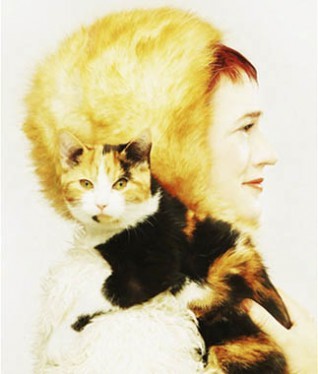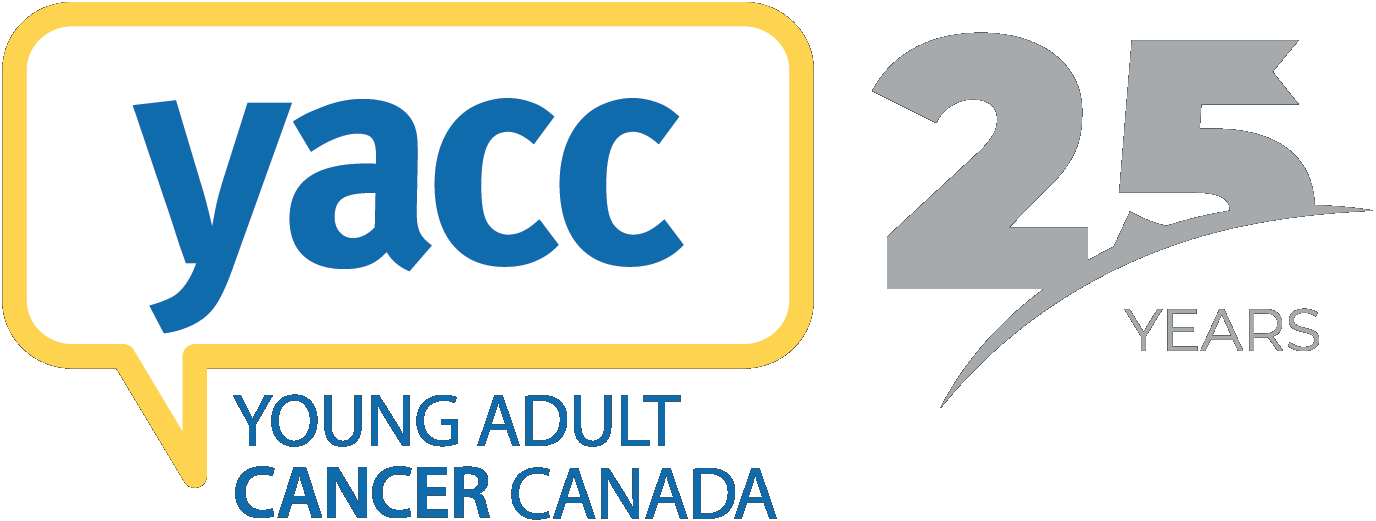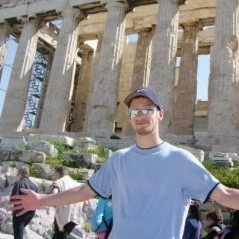
Elizabeth Knox
Age at Diagnosis: 36
Current Age (at time of profile): 36
Hometown
Montreal, QC
How did you find out you were sick? What events led to the diagnosis?
I never felt sick. In fact, I would say that this past year I have felt the most fit I have ever felt in my life. I started running just over a year ago four to five days a week (an hour each run) up and down Mount Royal with a running partner (who is now a very, very close friend). While most friends and acquaintances had several colds a year, I hadn’t had so much as a cold in over two years! However, I have had a lump in my breast for about 7 years. I had it checked periodically over those 7 years with mammograms and ultrasounds (but no biopsies until this past April). The last ultrasound / mammogram appointment I had prior to the cancer diagnosis was in 2003. That was 5 years before the cancer diagnosis. I don’t know why the breast clinic did not see me between then and my diagnosis. I was told at that time (2003) that the lump was benign. My GP noticed last Fall (2006) that the lump had changed in texture and sent me for another mammogram and ultrasound. It took them 6 months to schedule my appointment (criminally long!) and when they finally saw me they almost didn’t do the biopsy because the lump had not changed size over the years. The biopsy results were positive for cancer. I still don’t know if it was cancer all along or if it turned cancerous over the past year or two (or more). I lost faith in that hospital and shopped around for another breast clinic before settling on Cedars Breast Clinic at the Royal Victoria Hospital.
What year was it? What was your age at the time?
April, 2007, I was 36.
At what level of education were you at diagnosis?
University degree (BA, Eng.)
Do you work? I’m self-employeed & run my own business, Knoxpix.
What was your diagnosis?
Invasive ductal carcinoma. I became metastatic in 2013.
What are your career goals?
My focus (pun intended) is on travel photography, photo documentary and portraiture. My plan is to continue to travel and shoot documentary projects, independently and in affiliation with humanitarian organizations (NGOs).
What were your first thoughts when diagnosed?
I am not going to die of breast cancer, I have too many good things going on. I am just getting started! The day of my diagnosis (just before going to my appointment) I was riding on a career and personal high-note. I was feeling extremely optimistic about my personal and career goals. I was not expecting a cancer diagnosis but I was ready to have the lump removed regardless of the diagnosis (that is, even if it were considered benign).
How did your family react?
I called my husband immediately and he came to meet me at the hospital. I called my sister within the next few days. My sister was very supportive.
How did your friends react?
Most were surprised. Many expressed sadness. I was not treated any differently, except that when I asked for more support and was specific about what I needed (mostly to have people spend time with me), most friends were very generous and responded well. Some offered help without prompting at all. Quite a few, actually. Initially, I only told a select group of friends and asked them to keep it confidential. I only decided to tell more people after attending Retreat Yourself 2007 when I realized I needed a greater community of support around me and that I was suffering emotionally by restricting my support group. I don’t regret the decision to expand my support group. I only wish that I had made the decision earlier.
What did your treatment consist of?
Medical Side: Mastectomy with immediate reconstruction, axillary node dissection (Two of twelve nodes were cancerous). A medical oncologist has recommended chemotherapy but I am declining. I find that the side effects far outweigh the very slight statistical decrease in possible recurrence .
Non-Medical Side: I could go on for pages and pages about the emotional side-effects of dealing with a cancer diagnosis. I have been extremely fearful, depressed, anxious, optimistic, hopeful and inspired. All over the place. From one extreme to another.
In which hospital(s) were you treated?
Hotel Dieu (in whom I have lost all trust and promptly left soon after diagnosis, before any treatment) and Royal Victoria Hospital, Montreal, where I am currently being treated.
What is your current medical status?
Cancer-free (that’s me!) The surgical pathology report shows clear margins and a trace of cancer in only 2 of 10 nodes that were removed. I refuse to use the term in remission since that term implies that the cancer will return. Why create such a negative self-fulfilling prophesy like that?
How is life different for you now post diagnosis (physically, emotionally, socially, spiritually)?
Are you kidding? Completely different. I am juggling being very optimistic about my current cancer-free status with looking over my shoulder in fear of what other cancers or diseases could come. To be diagnosed with a deadly disease when I never felt sick is completely mind-boggling. I am both stubbornly optimistic about being cured and yet paradoxically paranoid about falling prey to other illnesses or cancers.
What is/was the toughest part of your challenge?
The fear and emotional upheaval it has brought on.
What is/was the best part of your challenge?
It has inspired me immensely. It has shaken me to the core. I am creating a workshop to help cancer patients, support people and hospital staff. It is going to be awesome! I feel more empowered than ever to live from the heart and not to make decisions out of fear. Nor to be immobilized by fear. Life may be shorter than you think.
What really motivated you to keep going while you were sick?
My husband’s encouragement and support from friends and psychologists. Mostly the incredible love and devotion of my husband!
What lessons or messages have you taken away from your experience?
To live from the heart, to be passionate, to move to my own rhythm, to trust and follow my intuition, to eat well, to live well, to take care of myself, to love others more openly, to be more grateful, to build and nurture community, to heal broken bonds with family and friends, to overcome fear, to make plans, to act on those plans. The list goes on.
What are your thoughts and feelings about your illness now? How have they changed since before your diagnosis?
My thoughts and feelings are the same as what I have already described. Since this is all still new and fresh, there has been little time for any significant change of perspective. From the get-go (ie. diagnosis) I dug in deep to understand this disease in every possible way (medically, energetically, emotionally, physically, spiritually). There is no stone I am unwilling to turn over in my search to comprehend and heal myself of this disease (and all of its possible causes and underlying conditions). It is a never-ending puzzle with new pieces revealing themselves each day. That said, I try not to be overwhelmed by the possibilities. It can be daunting, nonetheless.
What are some (if there are any you know of) preventative measures that people can take to lower their risk of having an experience like yours?
Eat well (lots of vitamins and supplements, vegetables, fruits and whole foods – especially blueberries, brussel sprouts, ground whole flax seeds, olive oil); exercise (3-5 hours of cardio-vascular exercise per week is optimal); use special filters for the shower and for drinking water to remove chlorine (a xeno-estrogen that may contribute to breast cancer); meditate; believe in your body’s ability to heal itself; reduce stress; express and then let-go of your emotions; heal old emotional wounds. This list goes on too!
Did you attend any support groups during your challenge?
Yes, various support groups like breast cancer support groups, young adults with cancer support groups. Each group has its own vibe and ensuing benefits. They have all been immensely beneficial, particularly Retreat Yourself 2007, organized by RealTime Cancer.
How are you connected with Young Adult Cancer?
CanSupports AYA group (adolescents, young adults with cancer) told me about the RealTime Cancer retreat. I filled out an application and attended.
I think RealTime Cancer is awesome and it is now my charity of choice. Most of my fundraising and support for charities will go toward helping RealTime Cancer. Retreat Yourself 2007 was an exceptional experience. I cannot thank RealTime Cancer enough organizing it.









